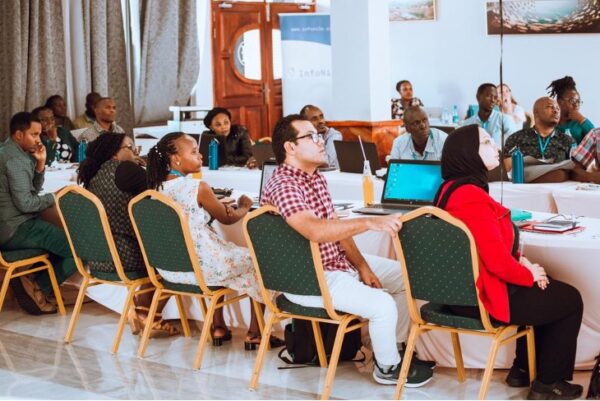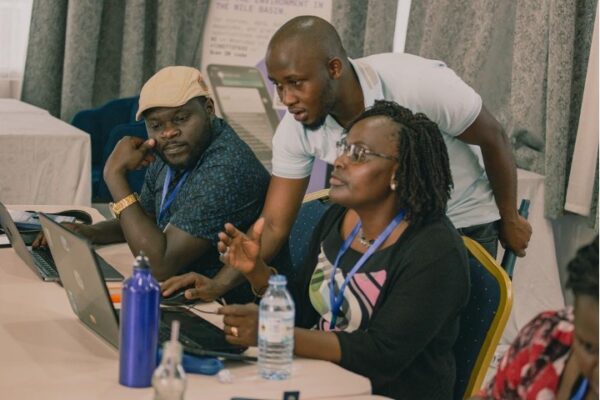JRS is proud to highlight the ongoing work of one of its longest-running and successful grant projects — InfoNile, implemented by Water Journalists Africa since 2019, continues to organize impactful training events, sponsor public debates centered on biodiversity, pairing journalists with scientists to ensure impactful reporting among an 11-country journalist network across the Nile Basin.

In an effort to bridge the gap between journalists and scientists, InfoNile launched the NileWell Journalist- Scientists Co- Production Fellowship Program which supports professional journalists and scientists/researchers with an interest in communicating biodiversity and aquatic research in the Nile Basin for a 9-month fellowship program.
Nilewell’s first pilot group gathered in 2023 for a week-long in-person training workshop in Entebbe in July 2023 where 16 participants (8 journalists and 8 scientists) from Uganda, Kenya, Tanzania, Egypt, South Sudan, DRC, Ethiopia and Rwanda were selected and trained in science communications, the research and journalism process, the importance of collaboration between scientists and communicators, reporting on transboundary water resources and biodiversity in the Nile Basin, use of traditional media to communicate research, pitching science stories, geo-journalism and data visualization as well as promoting research through social media platforms.

Participants also visited the Nile Basin Initiative (NBI) offices, where they got insights into NBI’s mandate, projects, challenges, threats and opportunities. They also participated in field trips to the Uganda Wildlife Educational Centre, an outing in Lake Victoria and a visit to the Entebbe Botanical Gardens.
One scientist and one journalist were paired per country to work on collaborative communications projects, co-producing communication outputs including stories, podcasts, press releases, short videos, clips and data visualizations based on the scientists’ research. The program extended over six months of follow-up online training sessions on communication topics such as data visualization, podcasting and social media content creation. Fellows were also grouped with expert science journalism mentors for individualized coaching as they produced their stories.
Read more about Water Journalists Africa and the InfoNile Grant here.

